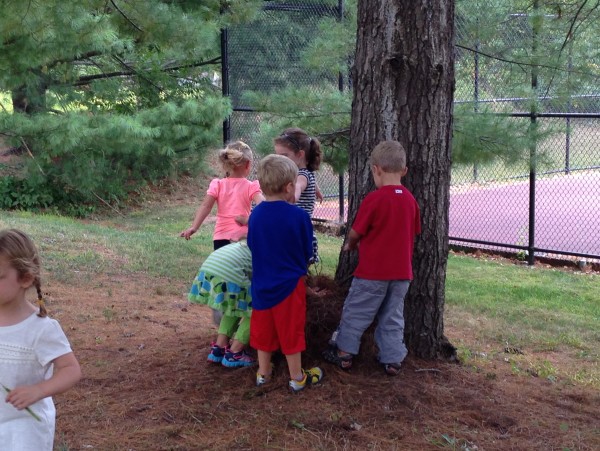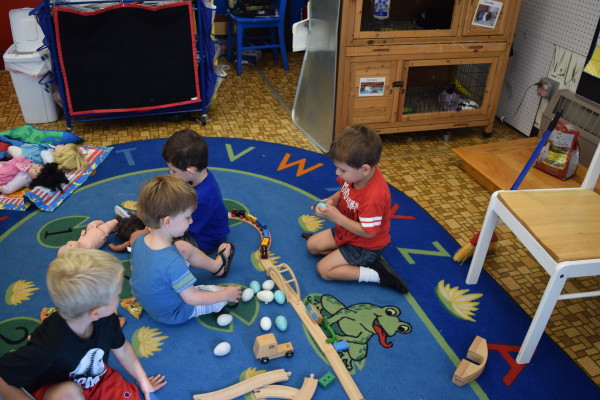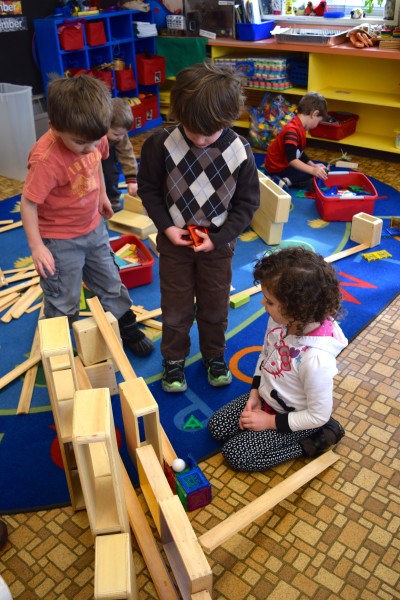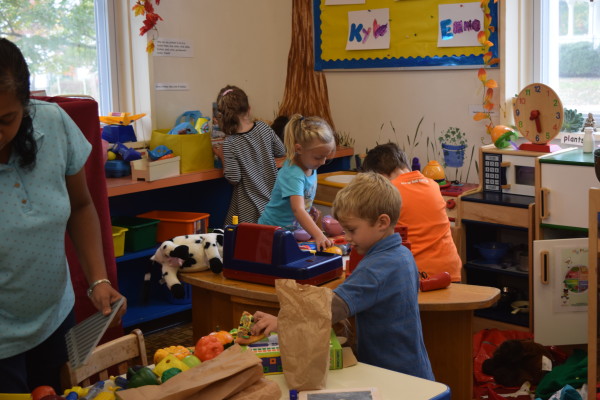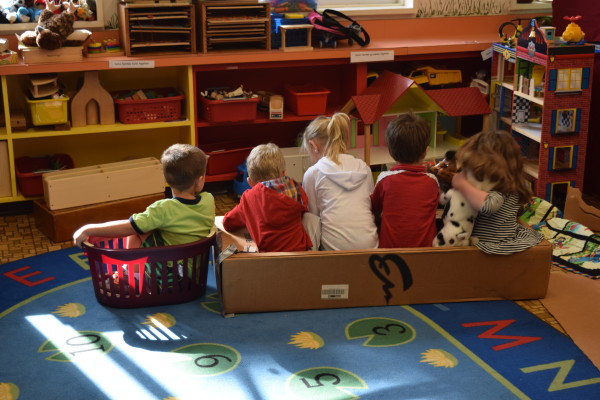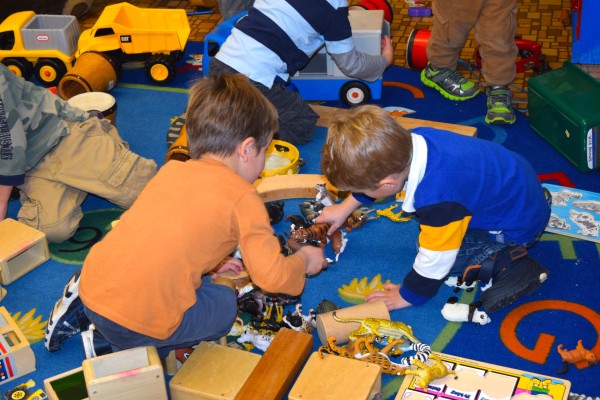How to Prepare Your Child for College and Job Interviews
Do you want your child to ace a college or job interview? The time to start preparing him/her is now while they’re in preschool!
No, I’m not crazy, and I’m not talking about Common Core.
In an interview, the person needs to be confident, well-spoken, polite, able to communicate effectively, make eye contact and carry on a two way conversation.
Interviewers expect potential employees to connect to others in a productive manner. In order to do that, one must be able to express their ideas and abilities effectively. Can they problem solve? Are they creative? Can they think for themselves? Are they team players?
My oldest son was accepted on Immediate Decision Day in college not based on his grades, but for his passion for history. He was able to communicate his knowledge and present it in a unique, creative way that impressed the interviewers.
If you wait until they’re older and “prep” them on interview skills, it will be new and may feel awkward. However, you can nurture these skills in preschool so that it so natural to them, they won’t have to think about it when the time comes.
How do you prep preschoolers?
Let them play.
The very first thing a preschooler needs to learn are social skills. Children need to learn to communicate their wants and needs. They cannot become little dictators, demanding their own way. (Well, actually they CAN, if the adults in their lives unknowingly encourage that behavior!) By playing with others their own age, they learn that grabbing a truck out of another’s hands may not be the best decision. They see the results of their actions. (another’s tears.) Adults help to guide them to communicate effectively and develop empathy. “Look at Johnny, how do you think he’s feeling? I see two people who want the truck, what do you think we could do about it?”
Did you notice I didn’t use the word “share?” To preschoolers, sharing means, “You have it, I want it, give it to me NOW!)” How would YOU like it if you were in the middle of a good book and your friends yells “SHARE!” Would YOU want to hand it over right away?” You can apply that to your new TV, game, car…. at school we encourage the children to say, “I’m not done with it yet, I’ll give it to you when I’m done.”
When playing, the children have to problem solve to come up with a solution.
Dramatic play promotes idea sharing, communication, and compromise. “I’ll be Batman and you be the bad guy!” Now the “bad guy” can break down into tears because s/he doesn’t WANT to be the bad guy, hit Batman, or s/he can communicate what s/he wants.
What if THREE girls want to be Elsa? While they may simultaneously try to freeze each other, they’ll need to figure out a compromise.
Children need to learn to deal with difficult peers, or ones that have different ideas. (Just like any workplace!) Yes, they may melt down, say or do hurtful things. That’s were the adults in their lives help them to recognize what they’re feeling and help them come up with different strategies.
The important thing here is that the adults don’t actively direct play, but they step in and help the children identify the problem and encourage them to come up with solutions.
Communicating, problem solving, carrying on conversations. Confidence. Resiliency.
What about those first impressions on the interview? What can you do at home? Have them say “please” and “thank you.” I’ve seen some articles where parents think it’s old fashioned and unfair to children to make them say please and thank you. It’s not unfair, it’s polite. It’s kind. It shows respect for others. This is reinforced when they play. Children who are kind are more fun to play with than those who aren’t!
When they’re on a playdate, have them look the other parent IN THE EYE and say, “Thank you for inviting me.” As they leave, teach them to do the same. “Thanks, I really had fun.”
When you have company at home, teach them to stop what they’re doing, and greet the guests. Similarly, they should come and say good-bye when they leave.
Remember, children are not born knowing these things. They need adults to guide them. These reminders should all be gentle and fun.
Why am I “preaching” these things? As a mother of sons who are 27, 24, and 20, I’ve done all of the above. I’ve seen the results. (I was also an Early Childhood major in college and a teacher for over 30 years, but nothing compares to parenting and seeing the effects of your efforts!)
Successful interviewing skills start at home (common courtesy/manners) and at preschool (playing in a large group.) Really, if you think about it, it’s really easy to encourage alphabet and number play at home, but how often do you have 17 other children in your house?
I haven’t even begun to discuss the other benefits of play such as math, pre-reading, writing, brain development, etc.
For now, let your children play. Choose a school that lets your child play. Understand that they are not JUST playing. They are preparing for life.
*Ironically, just after I finished writing this, my husband emailed me this link from the October 16, 2015 NY Times:
